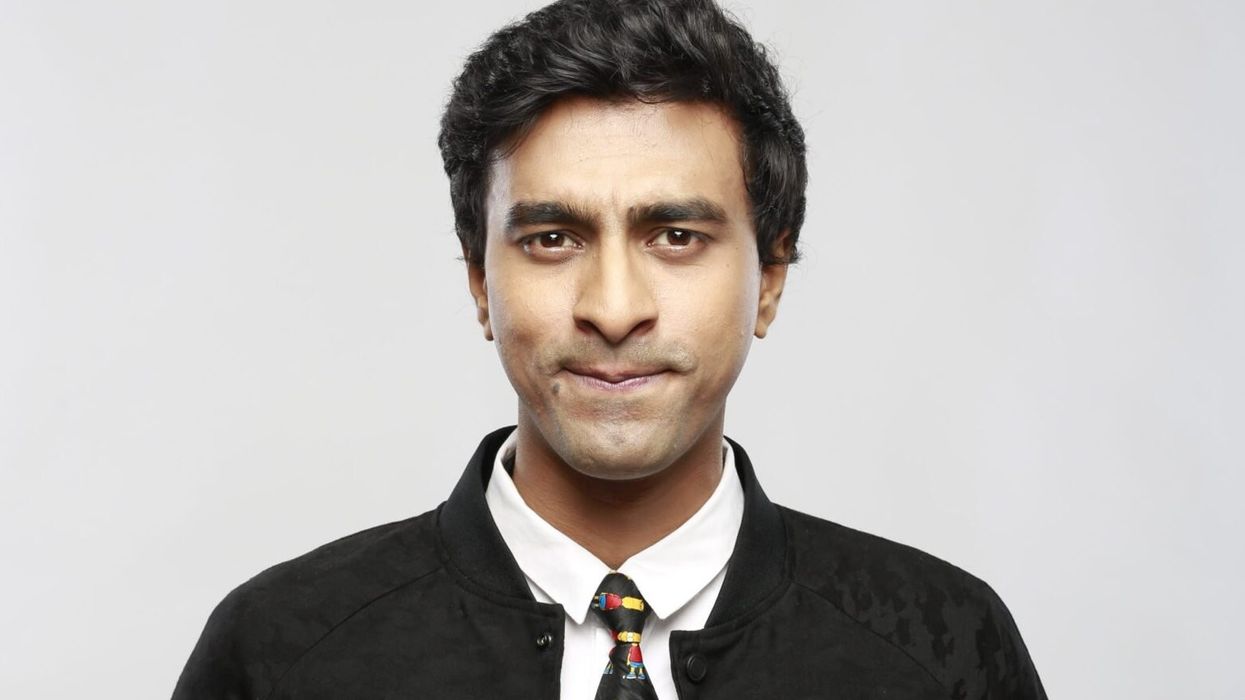A DEEP desire to put a smile on people’s faces prompted Varun Thakur to pursue stand-up comedy and the adrenaline of being on stage consolidated that career choice.
Falling in love with laughter has resulted in many memorable moments, including being a part of a pioneering group that helped to popularise English language stand-up comedy in India.
The fabulously talented funny man will perform his show Space Cadet at the Soho Theatre in London from November 20-25 and was in good spirits when Eastern Eye caught up with him. He discussed comedy, his UK shows, inspirations and being part of a path-breaking generation.
What’s been the most memorable moment of your comedy journey?
It’s tough to choose. But I think the first time that my parents watched me perform. For the first two years, my parents didn’t know or honestly understand what I did because stand-up comedy in English done by an Indian was very rare. I was doing one of my biggest shows at the Comedy Store and asked them to come. They were in the middle of a fight with each other and came separately.
What happened next?
I made them sit together. By the end of the show, they had forgotten that fight.
They had completely sort of fallen in love with each other again and were extremely happy to see their son make so many people laugh. Seeing them feel so proud was one of my proudest moments.
How do you feel when you’re on stage?
I feel the most alive. I’ve always loved being a performer. Whether it’s in front of the camera or on stage, nothing gives me more joy than doing that.
Do you know if a joke will be funny before performing it? That’s tricky. Sometimes. There are some jokes that you know everybody’s gonna like. There are jokes that I’m not sure whether people will like, but I find them funny and deliver them to the best of my ability because I believe in them. To see those jokes work is another high. So, you’re not always sure whether it will work, but go with your gut instinct.
How much are you looking forward to your Soho Theatre shows?
I can’t wait for November 20 to come. It’s such a prestigious place. I’ve been there myself to watch shows. To return there and do a solo run for a week is a tick off my bucket list. So, I’m super excited.
Tell us about the show?
A large part of my set is hilarious anecdotes that have happened in my life. So, this entire set is about that journey from being single to now being married, and all the changes that have been brought about. A big part of it also deals with the perception of marijuana, and why I feel it should be legalised.
Why is the show called space cadet ?
I have to clarify to people that the show has nothing to do with space, because they come expecting jokes about astronomy. That’s not happening. Space cadet is basically a slang about somebody who smoked a doobie and is in his own happy world.
That’s the kind of vibe that comes off through the show. Hence, I’d call it that.
Has being funny ever got you out of trouble in real life?
You know, it gets you into trouble because sometimes people don’t take you seriously. They think you’re joking all the time, especially with my wife. If we’re fighting, I try not to be funny, because, in my head, I’m like, maybe if I just crack a joke, she’ll be okay with it. But sometimes it doesn’t work. So, a bit of both - being funny has gotten me good stuff, but in trouble as well.
What according to you makes for great comedy?
I think when you’re just being true to yourself, and not trying to be somebody else on stage or put on an act for no reason, unless that’s a part of your sketch or something. Like, just go up on stage, have a smile on your face and talk to the people. Those comedians are the ones I relate to most. And that’s what I try to do.
Like just be the most honest version of myself on stage. That’s what gets people to like me, I feel.
Who’s your comedy hero?
There are so many like George Carlin, Bill Burr, Mitch Hedberg and in India, Johnny Lever. So, it’s tough to pick one. I usually like my buffet of comics.
What does it feel like being a part of a remarkable generation of Indian comedians, making a big international impact?
For us, it’s still nascent. Compared to the history of English stand-up comedy, we are about 15 years into ours.
I think I was one of the first 10 comedians in Mumbai, back in 2010. Now we have over a thousand seeing comedy as a legitimate career option, and audiences quadrupling, including in the remotest part of India. At this point, if you open the world comedy calendar, you will see an Indian comedian performing in some continent or the other, which is remarkable. I mean, Zakir Khan performing at the Royal Albert Hall recently, in conjunction with Soho was probably the biggest testament to Indian comedy being here to stay. It’s only going to get bigger and better.
What inspires you?
The joy of making people happy inspires me. I’ve had people come up to me after a show saying, ‘I was having an absolute sh*t day and one hour of your set has made me feel good’. That inspires me because you never know who’s going through what. Putting a smile on that person’s face in your audience is a blessing that comes your way, without them having to specifically say it. That inspires me the most.




